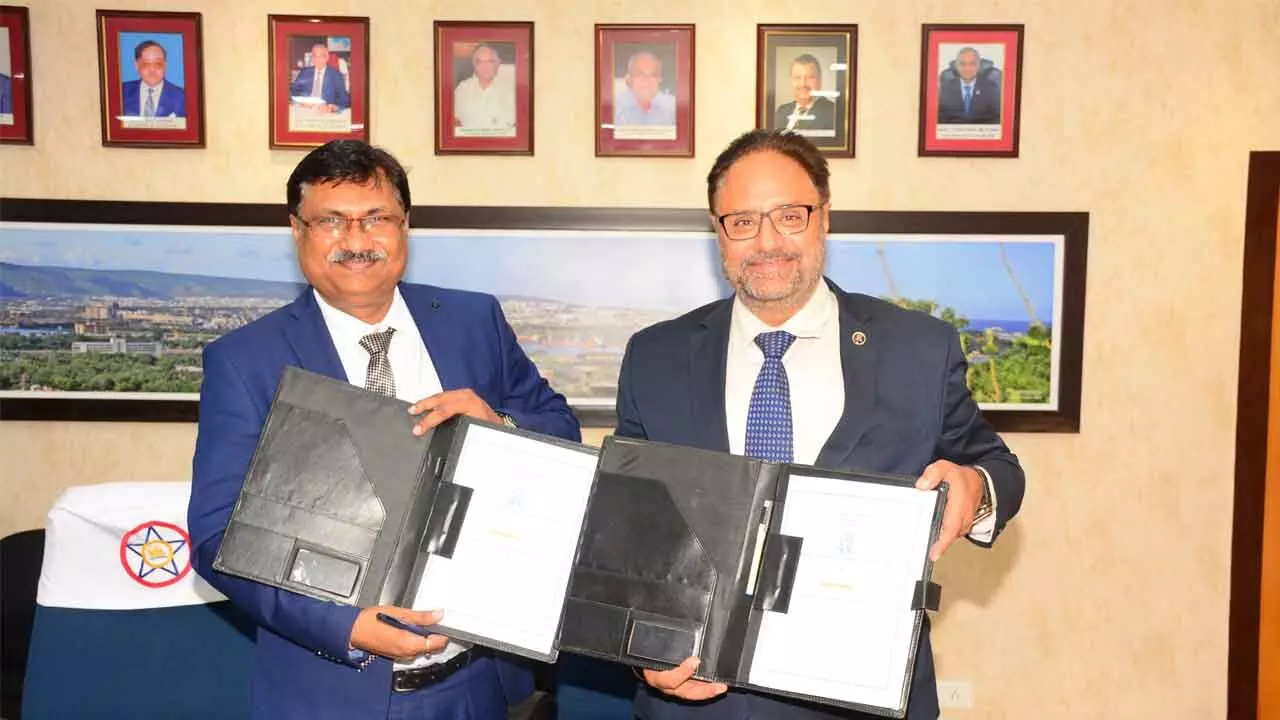Economic sense driving visionary hotel groups into service apartment business
Corporate demand for serviced apartments has levelled off this year
image for illustrative purpose

Incidentally, many hotel groups have also entered serviced apartment business. Tariffs lower than hotels for comparable space is a major selling point, the USP, so to say
Authentic boutique hotels continue to attract investors due to their flexibility in operations and lack of brand constraints, allowing for rapid adjustment to market demands and strategic vision implementation from day one. Experienced asset managers can help owners enhance this value by optimizing financial and operational strategies.
In terms of guest experience, reviving the spirit of “boutique” hotels will allow service to be the guiding star, authenticity to be the compass, and community to be the heartbeat. It is time to redefine luxury, one heartfelt interaction at a time.
After coming into its own during the pandemic and its aftermath, corporate demand for serviced apartments has levelled off this year, according to the Global Serviced Apartment Industry Report (GSAIR) 2024.
According to the report, which is based on a survey of some 3,000 corporates, serviced apartment operators and booking agents, the competitive advantage enjoyed by serviced apartments post-pandemic has been “eroded by hotels” that are expanding their own extended stay brands and, importantly, having built-in GDS connectivity.
There are 8.28 lakh serviced apartment units in the world now.
The growth in business travel, travel for project/assignment work and relocation of employees impact the service apartment market favourably. In addition, increasing aspirations and declining airfares have contributed to leisure/holiday market expansion and in the process spurred demand for serviced apartments. The aggregators offer a choice of serviced apartments at a given location, thus facilitating market-expansion. There are however, issues of recognized brand, inconsistent service, shortage of apartments at some locations and not-so-friendly booking process. However, facility-operators, those who manage several apartments across locations, and offer an identical brand and standard, have entered the service apartment business. Now, 15 global operators manage over five lakh apartments.
In India, the leisure/holiday market is characterized by some features, particularly in the upper-end segment. The holidayers crave for luxury/opulence experience, resort ambience, lavish food-spreads and group activity. This is likely to restrict the demand for serviced apartments.
On the other hand, business travellers are endeavouring to optimize cost and convenience. They increasingly prefer a set-up which caters to their customized needs-check in, food, amenities, living habits. Serviced apartments are equipped to cater to such customized needs. On the whole, we expect moderate growth in demand.
The market for serviced apartments in India is growing at 15 to 20 per cent per year. The development commenced on the strength of IT/ITes business, which needed to deploy on-site professionals for a few weeks or months. The early hubs were Bangalore, Pune, Hyderabad and Gurgaon.
In addition to IT/ITes, the following five streams of demand are driving the serviced apartment market.
There are quite a few areas where industrial projects and/or new corporate offices are coming up and the executives/vendors need to stay, in spells, for considerable length of time. The growth of facilities in Ahmedabad and Manesar has been driven by such traffic.
Some families/couples/single tourists wish to spend a long period (week or longer) at leisure destinations like Goa and Kochi and demand decent, home-like facilities rather than a hotel.
Next, there are medical tourists, who spend a few days or weeks in a hospital; they are accompanied by relatives who would like to stay in a serviced apartment.
Many cities like Jaipur for instance now attract “event” business, including fashion pageants, sports meets, cultural meets and literary fests. Those responsible for organizing such events have to stay in the city on an extended basis.
There are also groups like Arabs (Mumbai, Kerala and Goa) and non-resident Indians (Gujarat, Andhra Pradesh and Punjab) who make periodic and extended trips to home-towns and are interested in utilizing serviced apartment facilities.
Meanwhile, real estate developers like Radha Krishan Hospitality (1000 apartments) and Nitesh Estates have entered serviced apartment business. This trend is likely to catch up.
On the other hand, there is Oakwood, which has serviced apartments as mainline or core business and operates large facilities in Bangalore, Pune and other cities.
Incidentally, many hotel groups have also entered serviced apartment business. Tariffs lower than hotels for comparable space is a major selling point, the USP, so to say.
The nature of business, however, is such that a small entrepreneur can easily enter it. The facility promotion can be done in web/social media mode; it does not entail much expenditure. The customer-reviews, among other things, drive business volume. Many customers are repeat customers and so happy experiences contribute to business build-up. There is excellent scope for tie-up with corporations.

